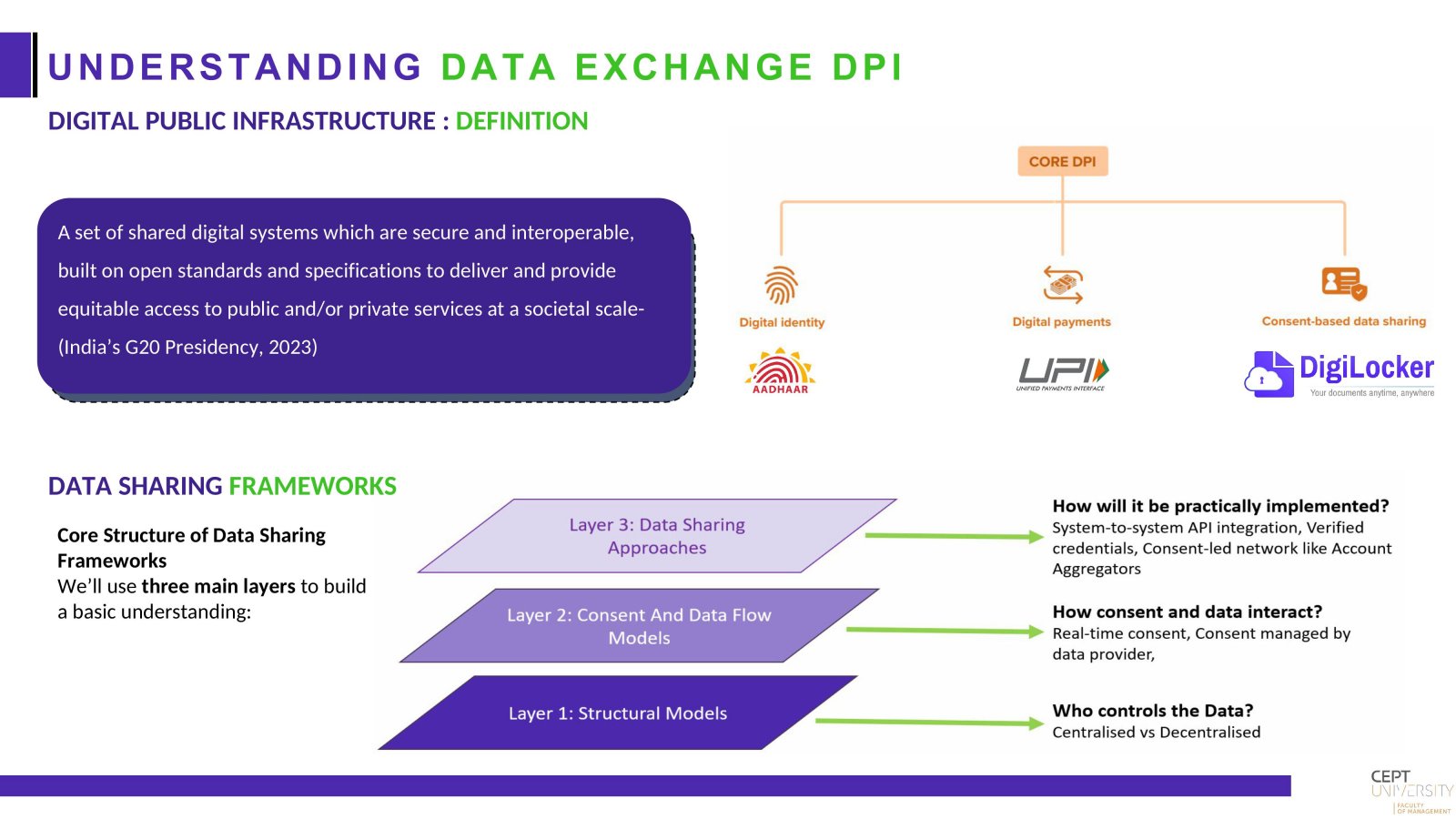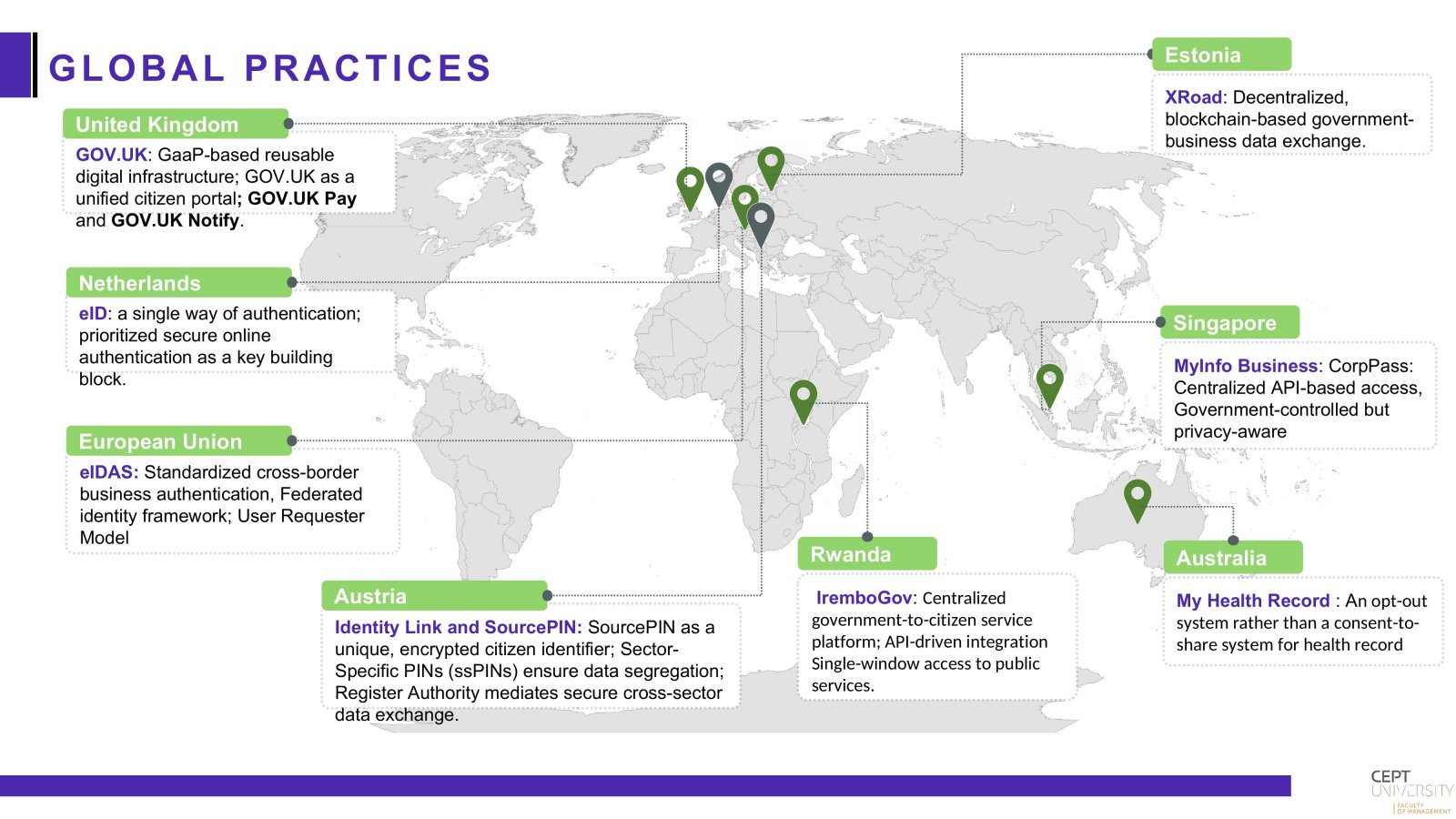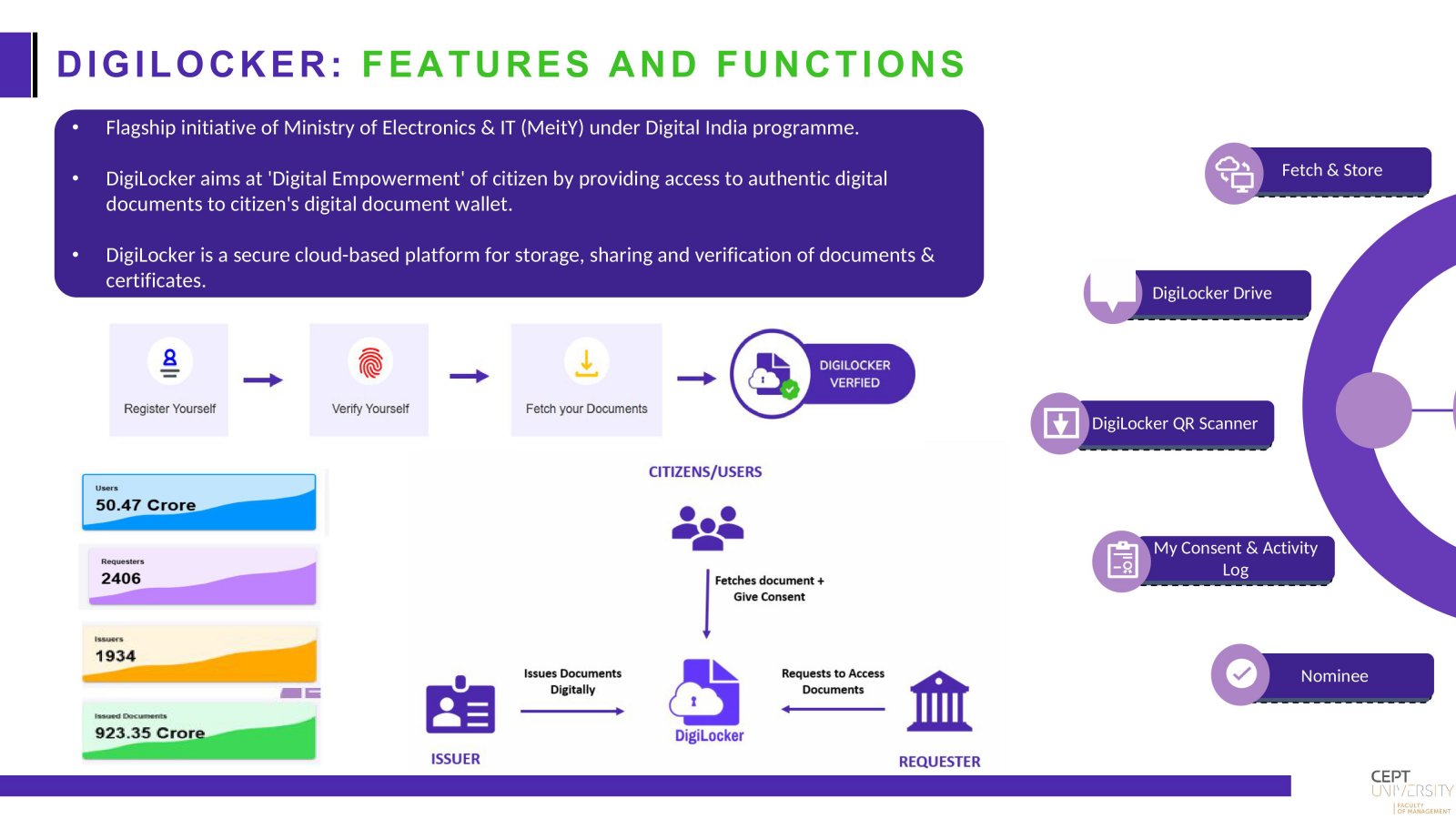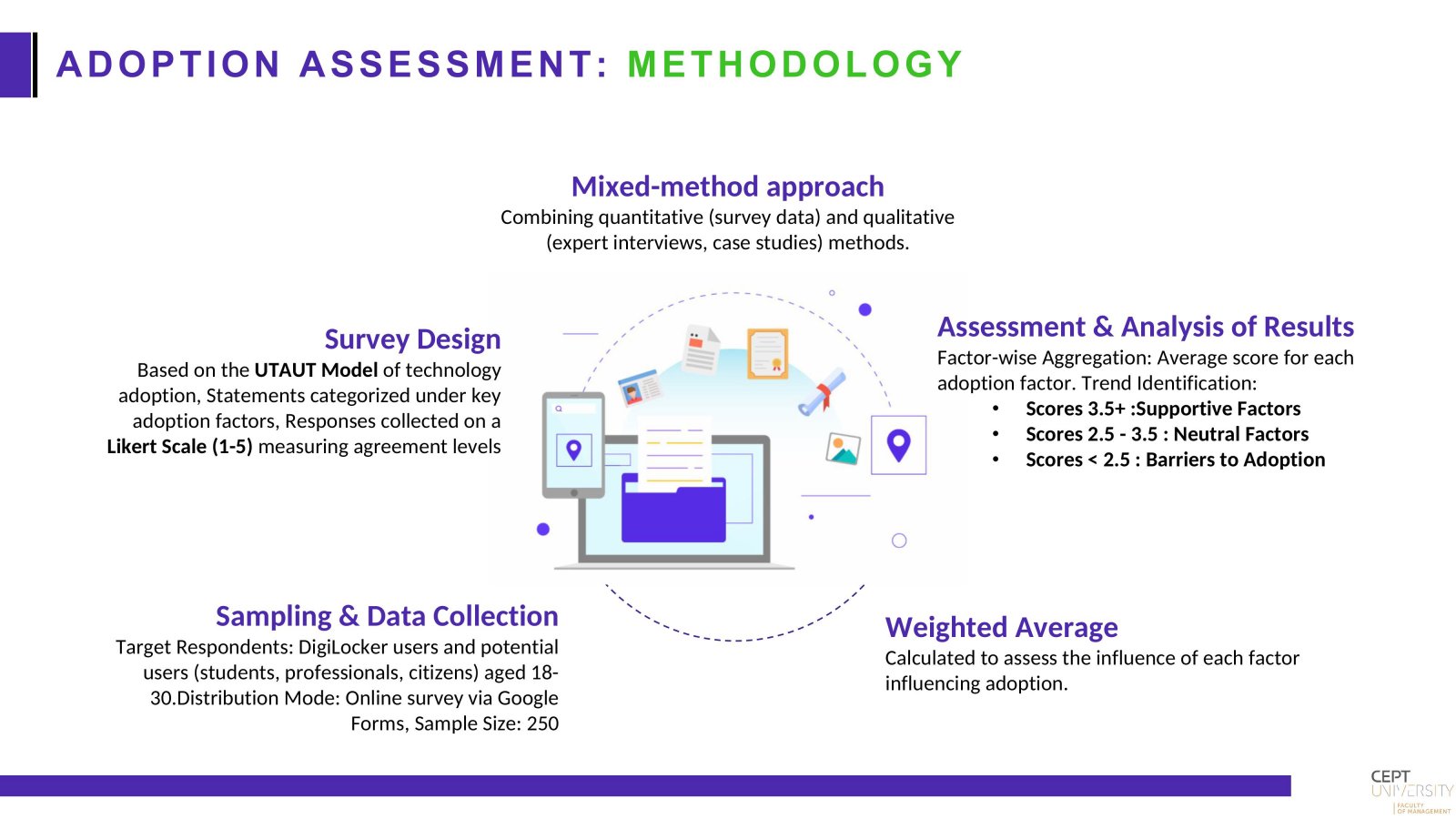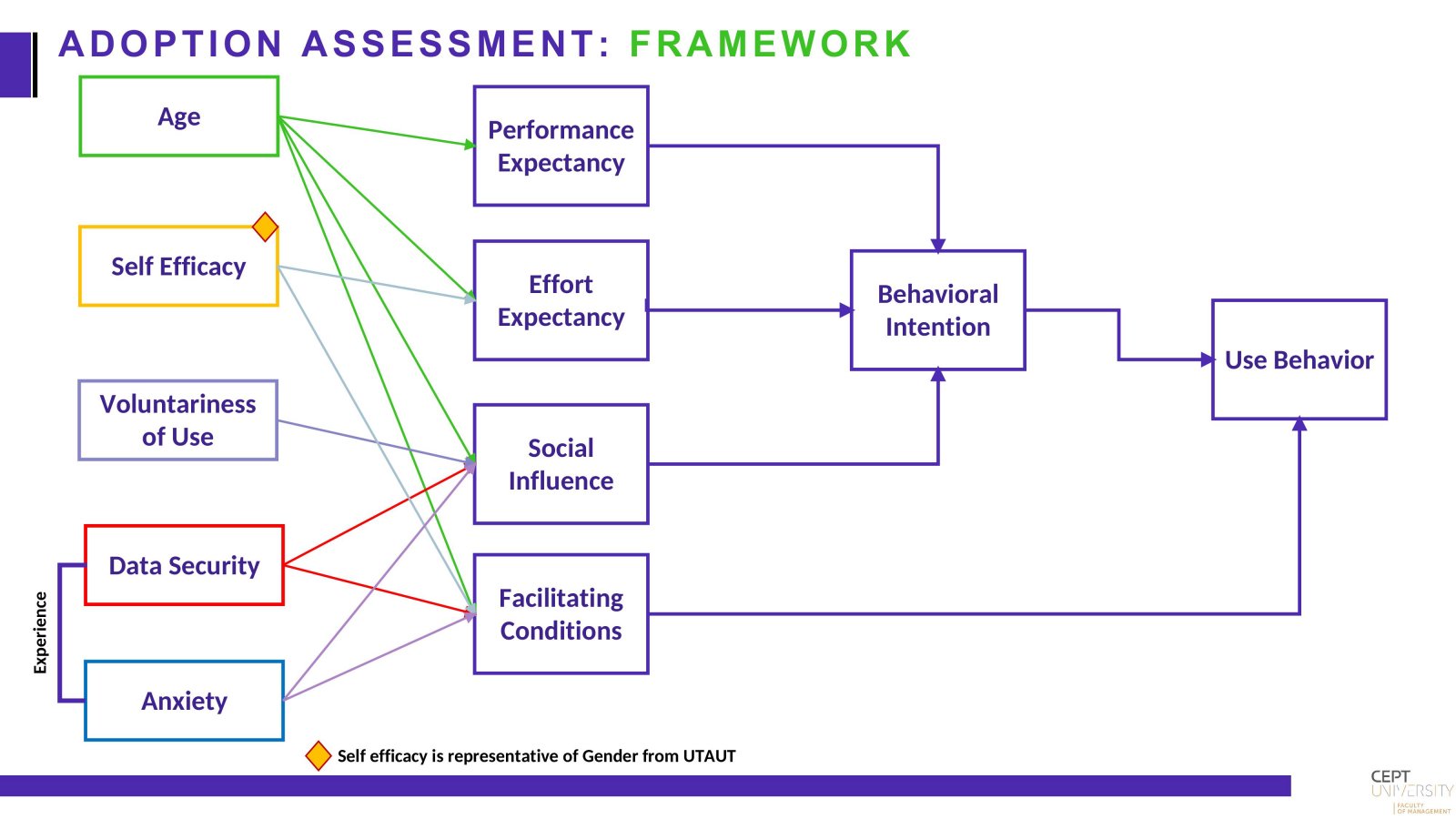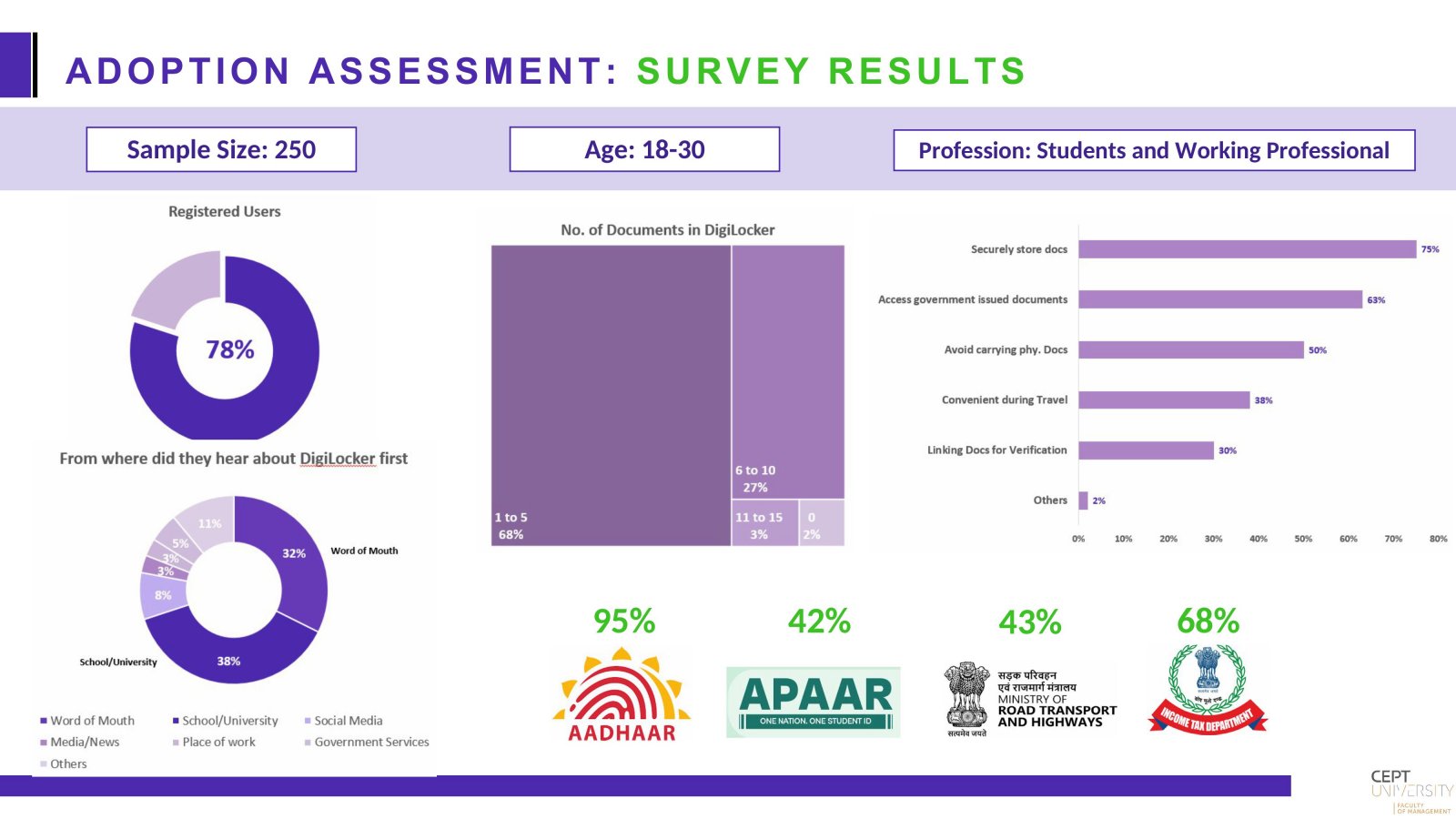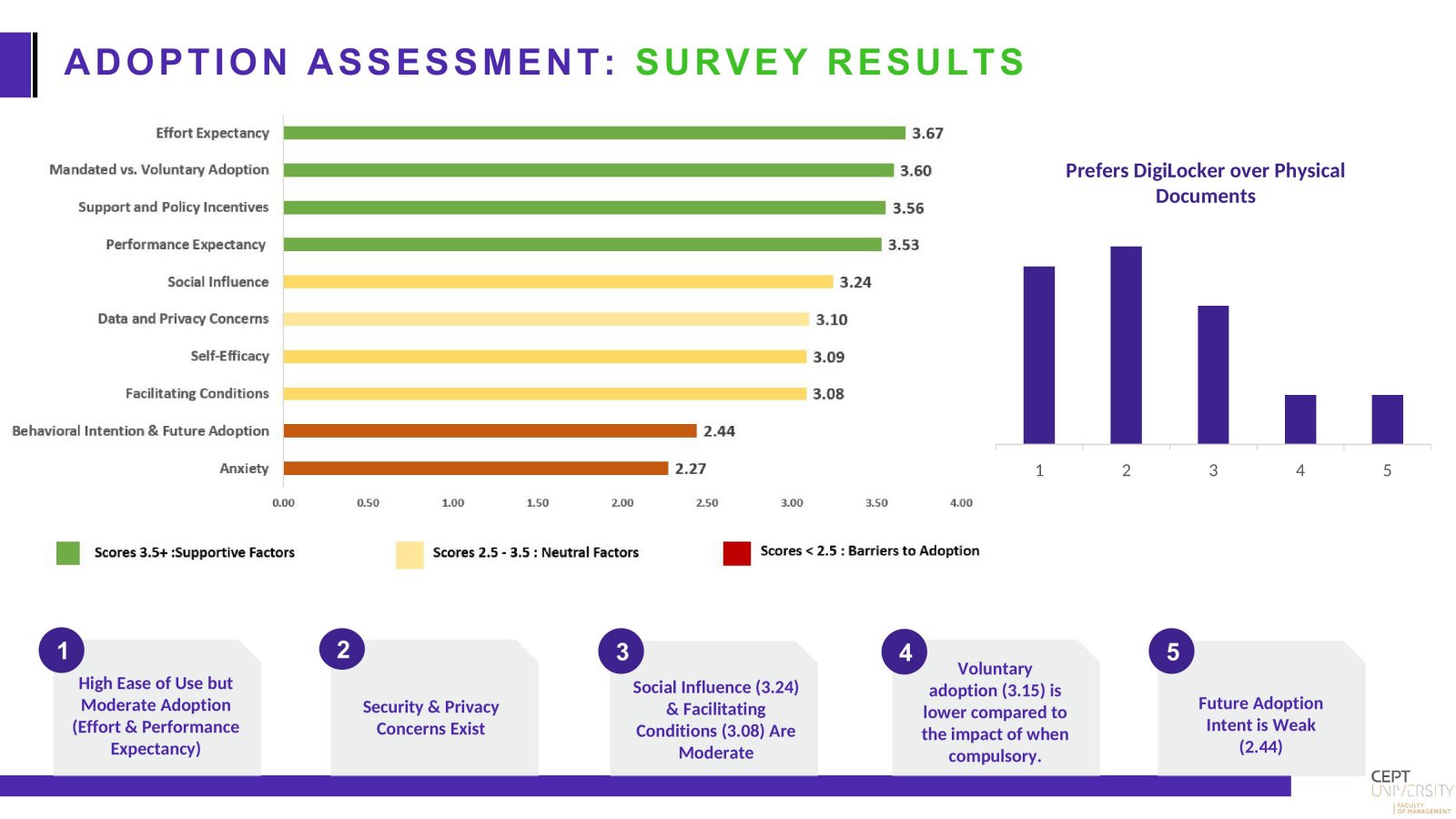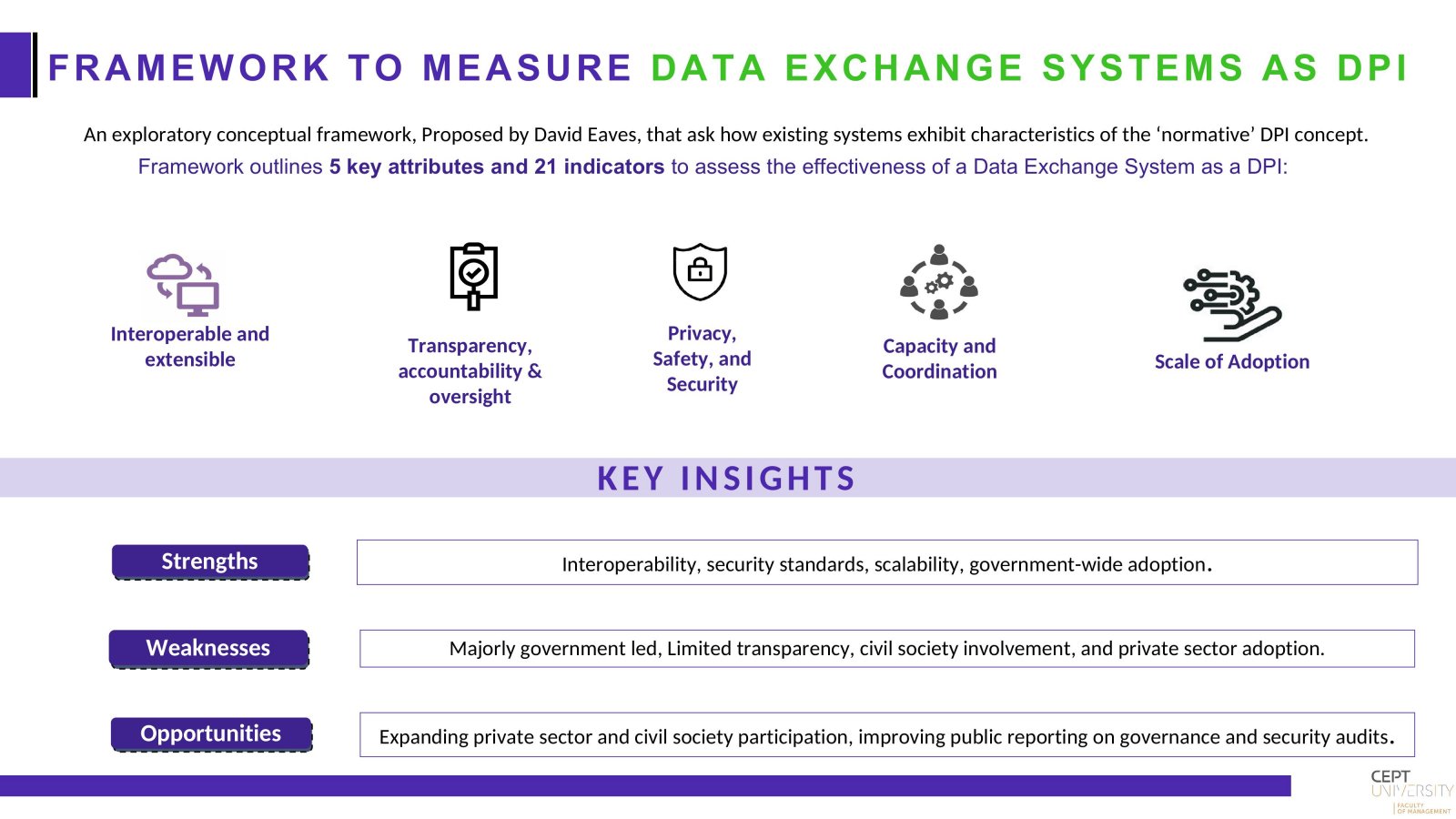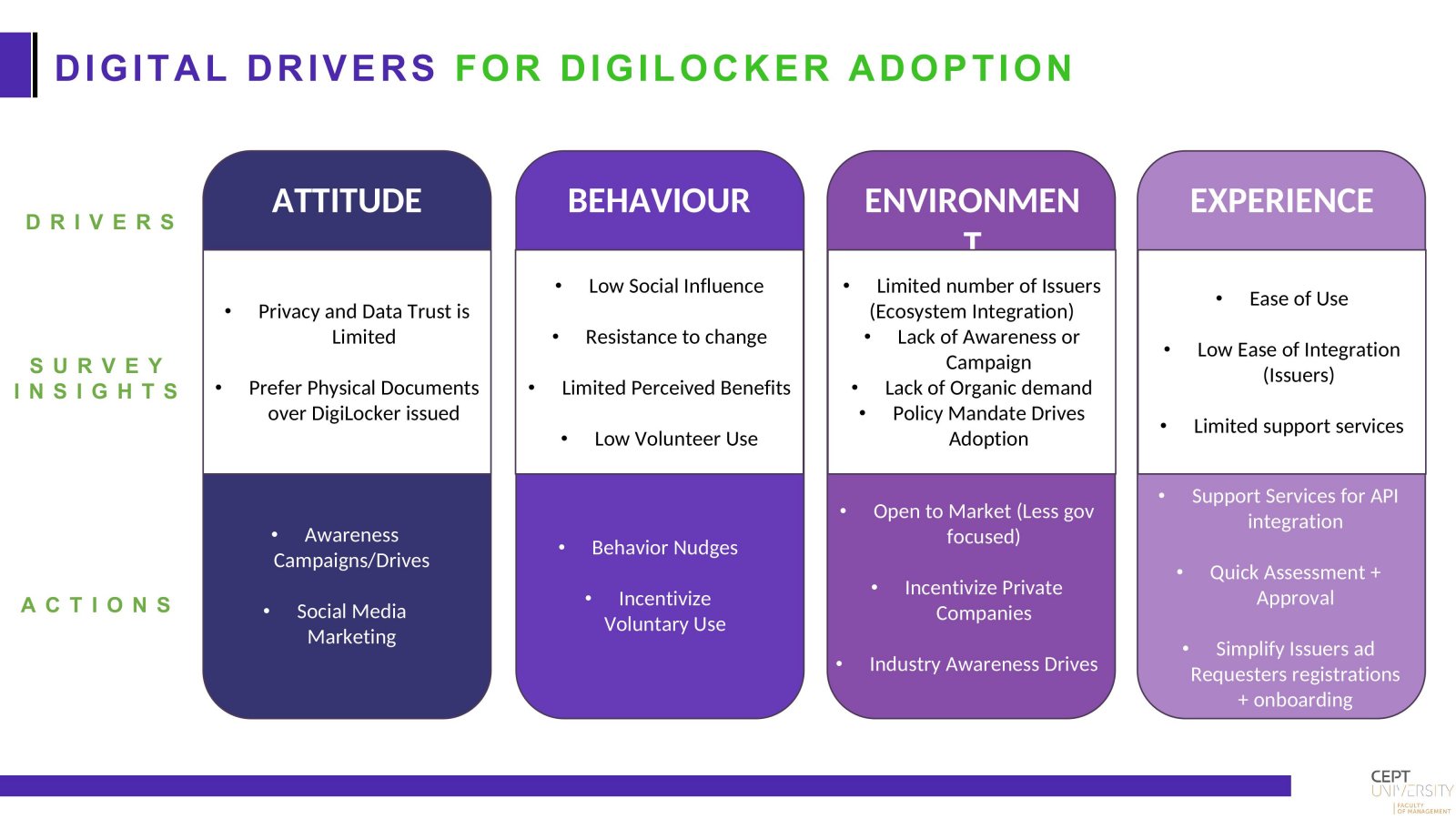Your browser is out-of-date!
For a richer surfing experience on our website, please update your browser. Update my browser now!
For a richer surfing experience on our website, please update your browser. Update my browser now!
This Directed Research Project (DRP) explores DigiLocker as a Digital Public Infrastructure (DPI) enabling secure, interoperable data exchange between issuers, users, and requesters. The study investigates adoption patterns, perceptions, and barriers among stakeholders, using a UTAUT-inspired framework to assess factors like performance expectancy, social influence, and data privacy concerns. Through surveys, interviews, and case analysis, the research identifies gaps in current usage, underutilized sectors, and opportunities for expanding DigiLocker services. The project aims to provide actionable insights and recommendations to strengthen trust, drive adoption, and enhance the role of DigiLocker in India’s evolving digital governance ecosystem.
